Coach Ben Reszel
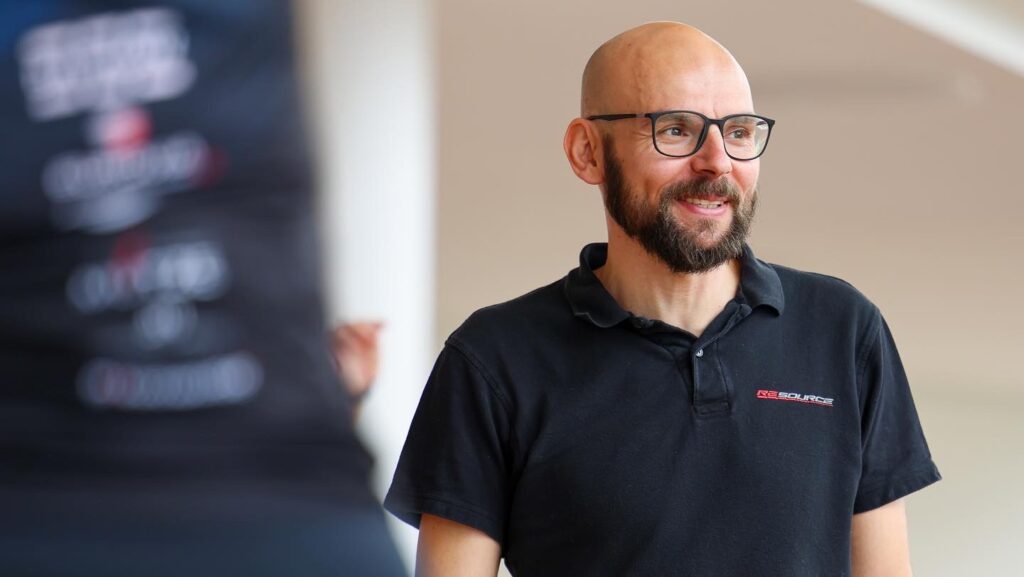
Coach Ben Reszel. Photo: Nancy Otto.
When Patrick Lange won the IRONMAN World Championship in 2024, his coach, Ben Reszel, celebrated at Walmart. Reszel got as close to the finish line as he could to cheer Lange to victory, and then immediately went back out on course to support Braden Currie, another one of his athletes. Only once Kona was done for everyone did Reszel take a moment to acknowledge what few coaches have the privilege to experience: a world championship title.
“Straight after a demanding race, I yearn for a moment of stillness to slow down and let everything sink in.” Reszel shares. “In Hawaii I bought a chilled drink at the Walmart close to Palani Road and just sat in the parking lot. I don’t like to get into the celebrations straight away. I mean, first it’s the celebration of the athlete.”
The 39-year-old German coaches an impressive stable of talent. Along with Lange and Currie, the list includes Daniela Kleiser, Mika Noodt, short course athletes Taylor Reid and Nicole Van Der Kaay, IRONMAN 70.3 world champion Jelle Geens, and recent fourth place Kona finisher Hannah Berry.
You’d be forgiven if you’d never heard a whisper of his name before. As he reiterates with a laugh during the interview, he doesn’t like attention and doesn’t enjoy interviews.
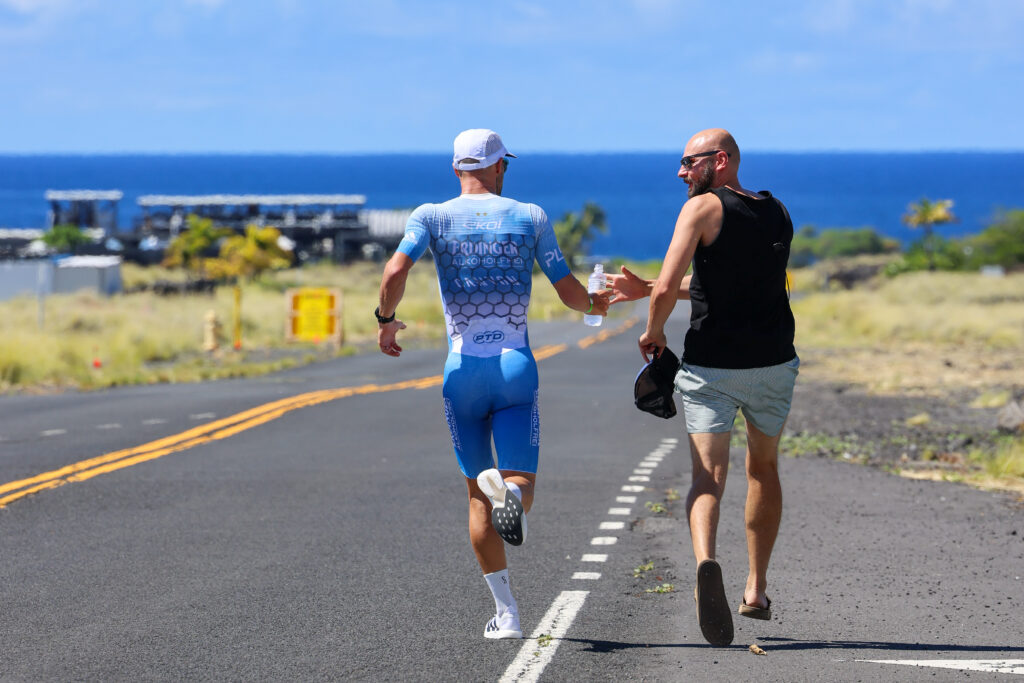
Patrick Lange with coach Reszel training in Kona 2024. Photo: Nancy Otto.
Building the Barn
Reszel’s avoidance of media is not from a place of secrecy, pretension or discomfort. Nor does it come from a place of modesty. His avoidance comes from a place of practicality–his work is coaching athletes, not doing interviews. In fact, he is logical and pragmatic to a fault, but that’s exactly how his career got started.
After finishing his sport science studies in 2009, Reszel began working at a sports lab in Munich. His analytical mind was busy, not just testing athletes, but noting everything that was inefficient.
“There was no parking around, you needed to search for it, and when you go to a test and your heart rate is already going up because you think you’re going to be late because you can’t find parking…” he points out, leaving out the obvious conclusion.
Reszel decided to build his own lab a year later, complete with stress-free parking and, much to the shock of the bank reviewing his business loan application, a €30,000 treadmill.
“They said: why do you need a treadmill which costs €30,000? There are other ones that are €1,500. I said, nah, that’s the best one you can get on the market and it’s specifically built for lab testing,” he says.
Reszel walked away with a loan big enough to fully kit out his dream lab. Later on he bought and renovated a barn in his local town of Lutherstadt Eisleben where athletes could park right outside and easily roll in their bikes.
“ My business idea was maybe part of it, but I think the bank saw the treadmill was still worth a good amount of money even when it’s two or three years old…I think that saved my ass at the end,” he laughs.
If you build it, athletes will come. Reszel quietly grew his company, Resource, and in 2014 started working with his first professional triathlete, Christian Kramer (also Reszel’s first athlete to go sub-8, which he achieved with his runner-up finish at Ironman Austria in 2014). Now, Reszel works with a myriad of top professionals and age groupers as well as two other freelance coaches, one of them being Kramer.
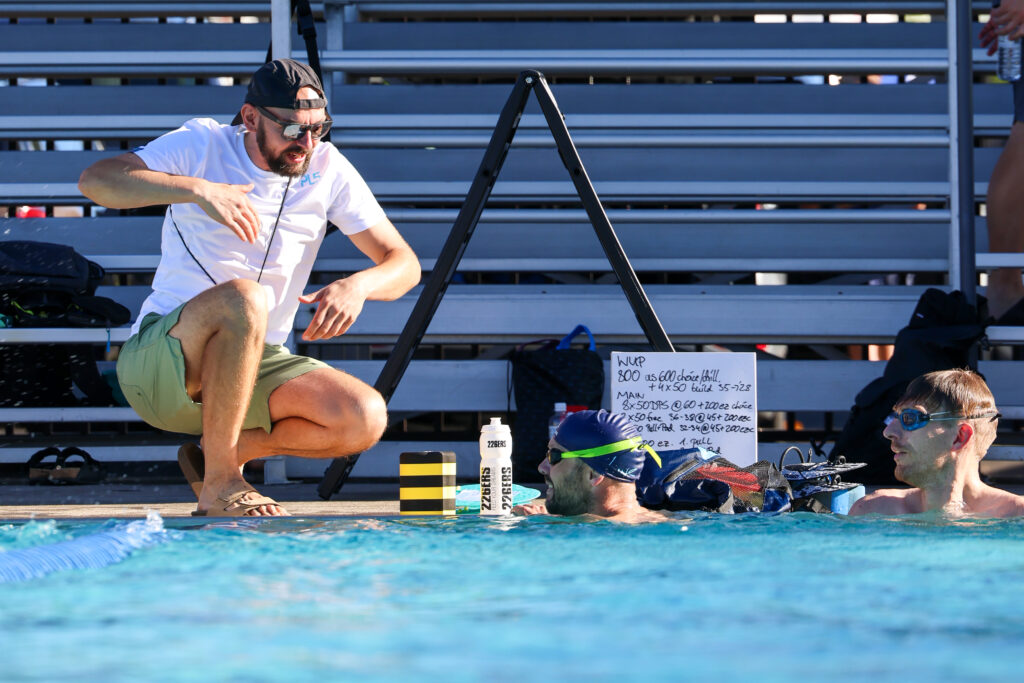
Coach Reszel on deck. Photo: Nancy Otto.
The Complexity of Simple
Reszel doesn’t talk about the specific sessions he gives or why he believes very easy rest days are essential. There is no mention of watts or running intervals during the interview because his approach to swim-bike-run isn’t, by his measure, anything special. But, just as he identified parking as a barrier at the lab in Munich, Reszel’s analytical mind is hardwired to find the most practical and efficient way of achieving an athlete’s goal and that innate detailed perspective sets him apart.
“ I don’t think that it’s rocket science what we are doing, to be honest,” says Reszel. “It’s definitely not simple. But, if you try to understand things like the environment, what’s happening in the family, or just feel how much tension is affecting the system from other areas, that’s also what I try to pay attention to. It’s not just about the load, it’s the principle of maximum adaptation, not maximum training.”
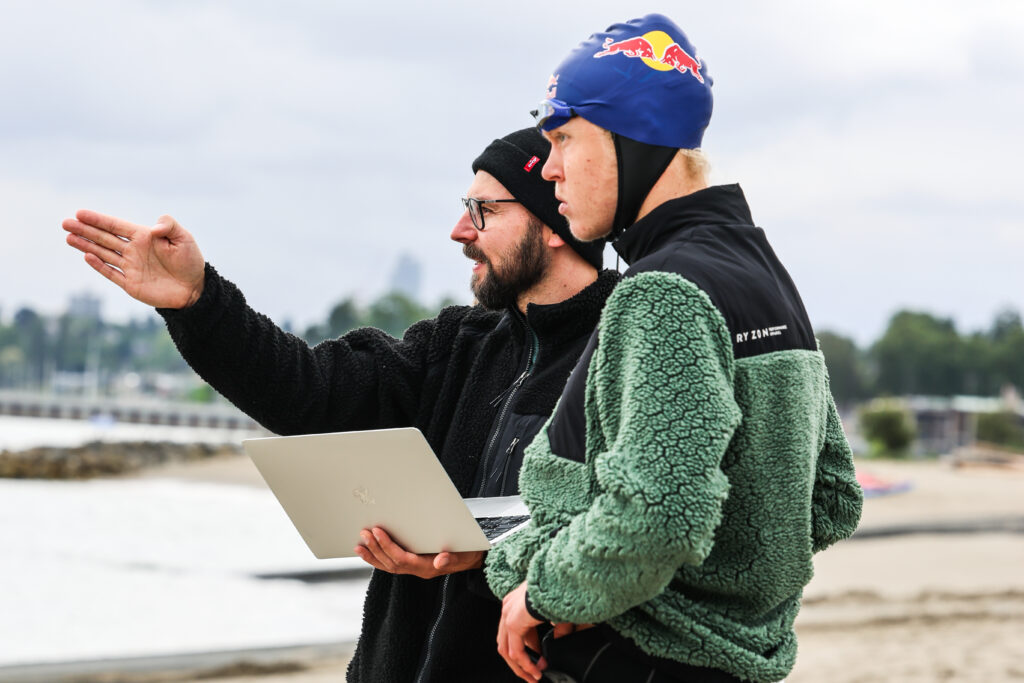
Coach Reszel advising Mika Noodt. Photo: Nancy Otto.
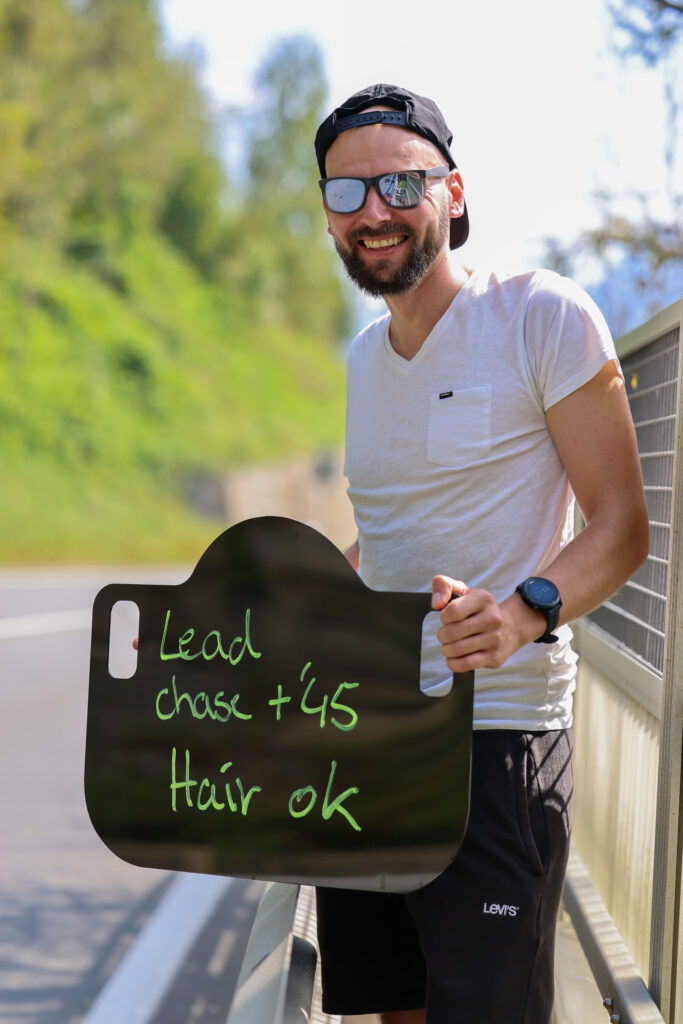
It’s all about the details. Photo: Nancy Otto.
“I just talked to Hannah [Berry] before we started our interview,” he explains. “She’s coming to Europe now, so, for example, I would plan a swim for her because it could be beneficial after the flights and all that. But there’s no pool access on Sunday in Spain when she arrives. You can put athletes under pressure because if it’s in the plan, everyone feels they have to do it. That’s why I try to figure out beforehand — before planning everything — how to make it as easy as possible for them to follow.”
He also notes there is a psychological consideration to such meticulous planning. Once an athlete sees a plan, an expectation is set.
“Athletes might say: ‘That was his best idea for me, and I just can’t do it.’” he says. “That’s not how it works– form doesn’t appear overnight, and you won’t lose it that quickly. I’m always interested in avoiding a potential mental headwind heading into sessions.”
The same holds true handling an athlete’s emotions. Daniela Kleiser, one the fastest runners in triathlon who started working with Reszel last year, credits his holistic approach to her consistent success. As she detailed in a previous interview, since she has been with Reszel, she is running less and getting faster.
“I want to do everything and I want to do everything very well, but Ben is very clear in those moments,” Kleiser says. “And he looks at the data and my health and my future and that’s a good combination.”
The complexity of monitoring and his ability to consider so many details is how Reszel looks to achieve the one thing any coach or athlete you ask will say is the key to success: consistency.
“No secret,” Reszel laughs. “And that’s the thing: it’s really not rocket science. There are countless great coaches out there. When the bond between athlete and coach is strong, and the environment supports them, that’s when peak performances can naturally follow.”
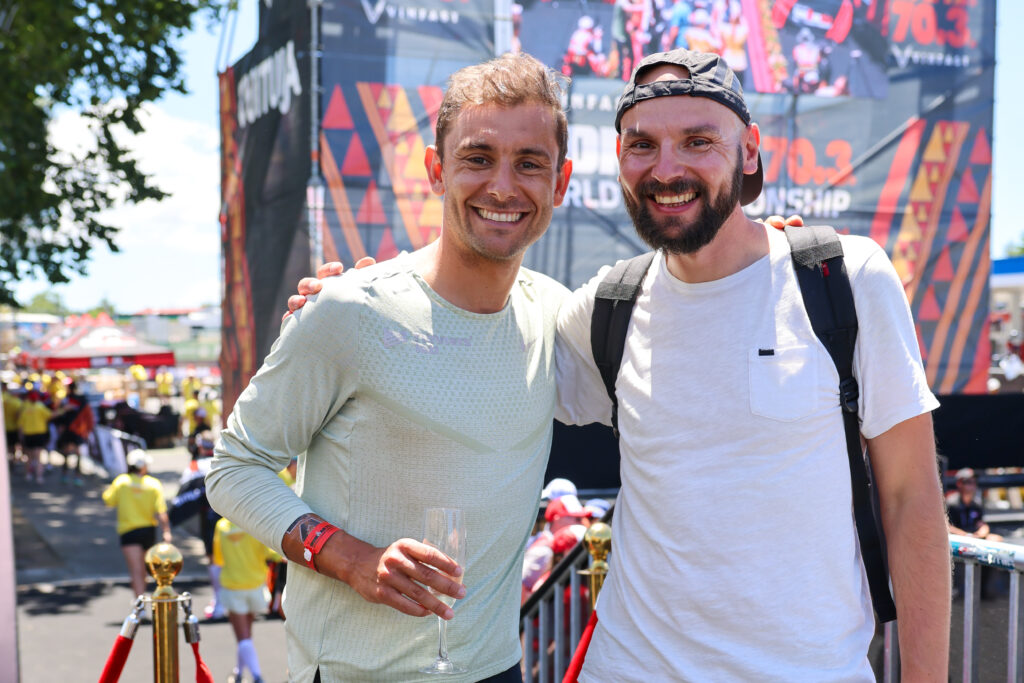
Jelle Geens and Coach Reszel at IRONMAN 70.3 World Championship 2024. Photo: Nancy Otto.
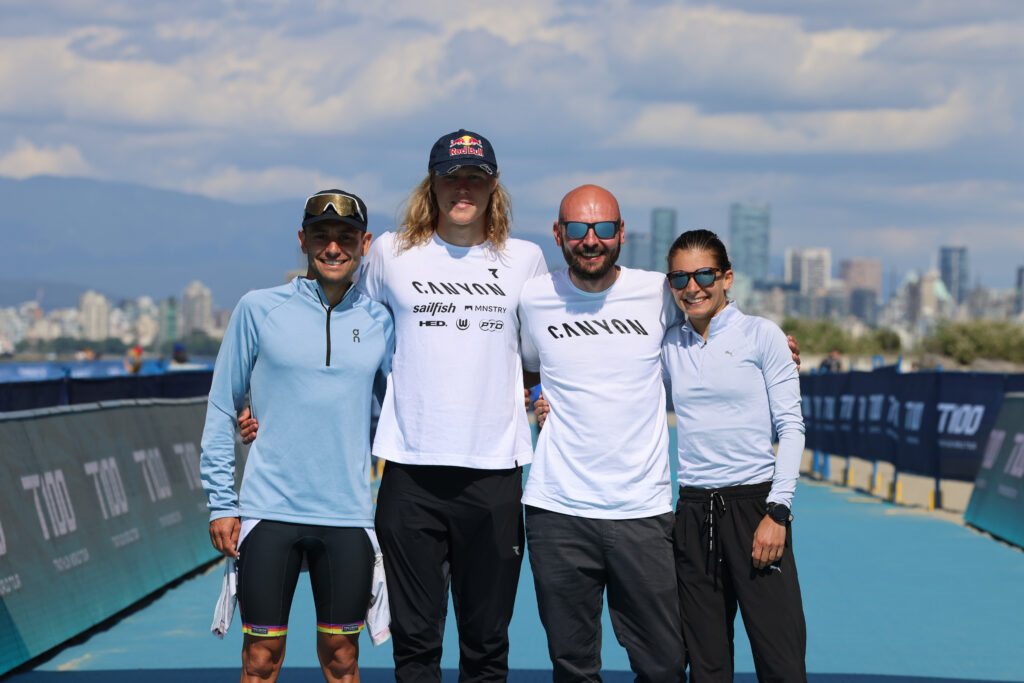
Jelle Geens, Mika Noodt, Coach Reszel, Daniela Kleiser at T100. Photo: Nancy Otto.
Cautious Change
Consistency might be the bottom line, but Reszel’s approach is underpinned by a multitude of fast changing variables. Technology and training advancements are within that constellation and must be considered, especially working with such high calibre athletes. That includes heat training innovations – using copper in Lange’s armrests for cooling at Kona, for example, or selecting the best chainring size for a specific course.
“I’m responsible for my athletes, and if there’s anything that can make them faster, I need to know about it in advance, or at least listen carefully if they have something specific in mind, so we can use it to their advantage,” he says.
But, while he explains how being open minded is a necessity, he is also quick to say that, even with the glow of success, keeping what works is important.
“I’ve worked hard over the past few years and, potentially, done a good job with both my age-group athletes and the pros,” Reszel says. “That’s why I aim to change as little as possible and as much as necessary.”
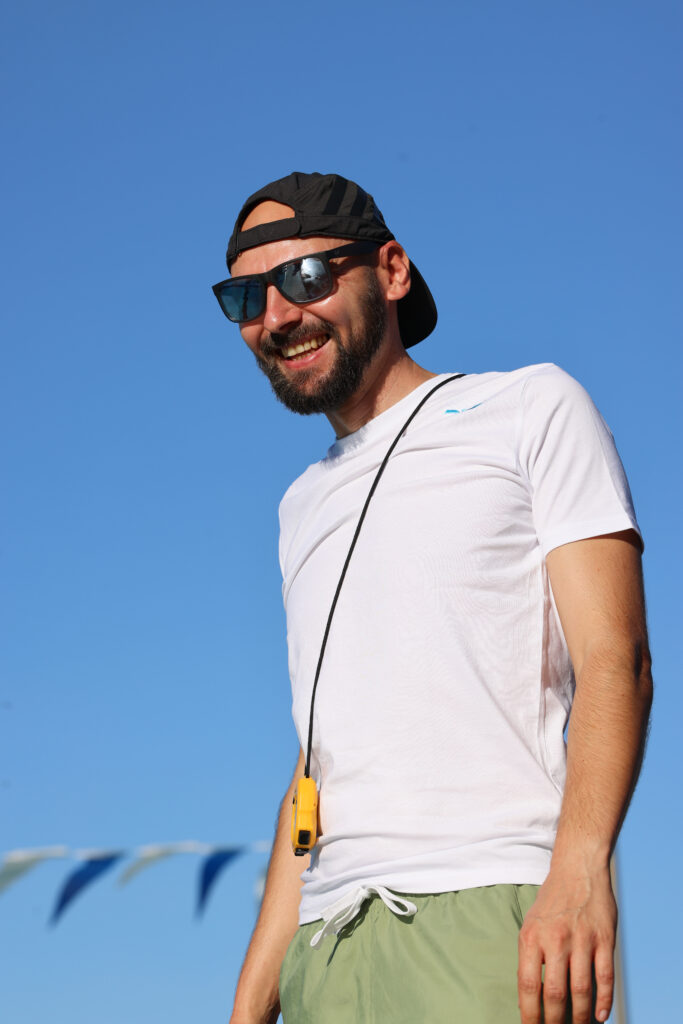
Coach Ben Reszel. Photo: Nancy Otto.
Silence is Praise
Reszel is forthcoming with his success, but he is so categorically pragmatic it doesn’t deter his gaze. Success seems to be a mere by-product of his job.
“I get the sense that the athletes want me to be a bit more expressive when they cross the finish line, emotionally,” he laughs. “I feel like it is easy to say I could be more ‘fizzing.’ But it’s just my type. It’s a different kind of enjoyment. I’m quite pragmatic, yet there’s a special satisfaction when a well-planned race unfolds nicely. It’s proof that preparation, effort and acknowledging the little details can make a difference and that is exactly what our job is in professional sports.”
“It’s somewhat like a pilot landing a plane while passengers applaud,” he continues. “Of course, it’s reassuring to see everyone back on the ground safely, and it’s lovely when people want to show their appreciation, but I don’t think pilots seek applause. They love flying and are fascinated by the chance to take to the skies. And, without underestimating the work of all pilots, landing safely is simply part of doing the job well.“
And that’s when his unflagging pragmatism reveals not just a fervent approach to his craft, but a pure honesty.
“A friend asked, ‘You’ve coached two athletes to become world champions now, what’s next?’ I just said: mate honestly, I just need to sit down at my desk like the last few years, do my work properly, and keep doing what’s already working,” Reszel says. “There is a German saying, ‘silence is praise.’ If we have endless discussions about where we are, it’s a massive sign something’s wrong. When it’s more quiet and everything flows, we know we’re heading in the right direction.”



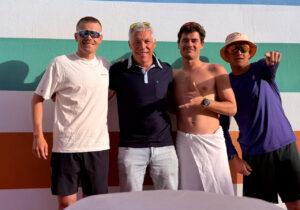
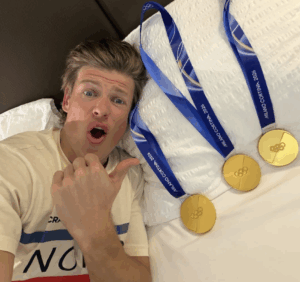
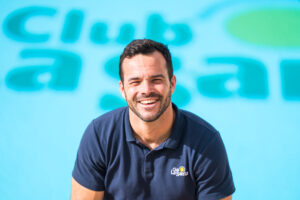

Thought this was an excellent interview. Reszel really seems to have hit a sweet spot for his top Pros. Worth noting Lange’s win in Kona last year (and #2 in Nice in 2023) was on the solid foundation of Geesmann’s coaching over several years. More recent results is a Lange body thing rather than a coaching (ill) effect. Berry and Noodt have both done really well this year. We’ll have to wait to see whether Berry can step onto the podium in one of the top races next year. Kleiser is such an exciting runner but she has succumbed to injury since Swansea. I wonder whether Reszel can motivate her to actually improve her swim: I guess she is so slight and short that her potential in the water is physique limited. But a few minutes better in 1.9km (ie not 10 back from the fish) would put most podia at least in sight.
Very good interview!
Really hit one out of the park with this. Quiet and interesting. Well done.
and from Berry:
An Insight into the Training That Led to My 4th Place Finish at the IRONMAN World Championships
(And Why It Might Not Be What You’d Expect!)
Training for an IRONMAN requires a focused and challenging block of training. For the IRONMAN World Championships in Kona, that block is usually the biggest, hardest, and most focused of the entire year.
Here’s a bit of insight into mine.
| | | |
| |
|:—:|:—:|:—
Photo: Ironmantri
Over the 10 weeks leading into Kona, my average weekly training looked like this:
Swim: 16.6 km per week
Bike: 10 hours 20 minutes per week
Run: 49.8 km per week
Total training time: 20.1 hours per week (including 1–2x strength sessions)
Less than 20 hours of swim-bike-run training per week (excluding strength) probably isn’t what you’d expect from a full-time professional athlete, and rightly so. These days, many pros report training volumes above 30 hours per week.
So why was mine lower?
This year, I chose to race three T100 races in three different countries as part of my build into Kona. That added a whole extra layer of intensity and complexity - more high-quality sessions, more travel, more recovery periods, and more logistics to juggle. Between tapering, racing, recovering, and moving between countries and time zones, training volume naturally had to come down.
I also had a minor setback five weeks out from Kona with a short head cold that kept me out for three days. Thankfully, it was brief and didn’t disrupt the overall plan much at all.
Despite the lower than usual training volume over the 10 weeks leading into the IRONMAN World Champs, I was able to produce my best ever performance and placing.
After my 4th place finish, my coach Ben admitted that before the race he was curious, and maybe a little nervous, to see how the reduced volume would play out on race day (although he hadn’t told me that before the race haha). But earlier in the year, I’d already banked several high-volume, aerobic-focused weeks with less racing and intensity, so he was hopeful it would play out well. And he was right - that base work had set a good aerobic foundation, and the lower-volume, higher-quality approach leading into Kona helped me stay healthy, fresh, and strong through the entire race season.
I guess this leave me wondering, maybe those ~30hour training weeks into big races isn’t the best approach after all?
Food for thought.
Extras for the training data lovers:
Over the 10 weeks leading into Kona:
Biggest swim week: 24 km
Longest swim: 5.5 km
Biggest bike week: 14 hours
Longest ride: 177 km
Biggest run week: 67 km
Longest run: 29.3 km
Thanks for reading!
| |
|
|----|
| |
|
|----|
| |
|
|----|
| |
|
|----|
| |
|
|----|
| | READ IN APP |
|
|----|----|